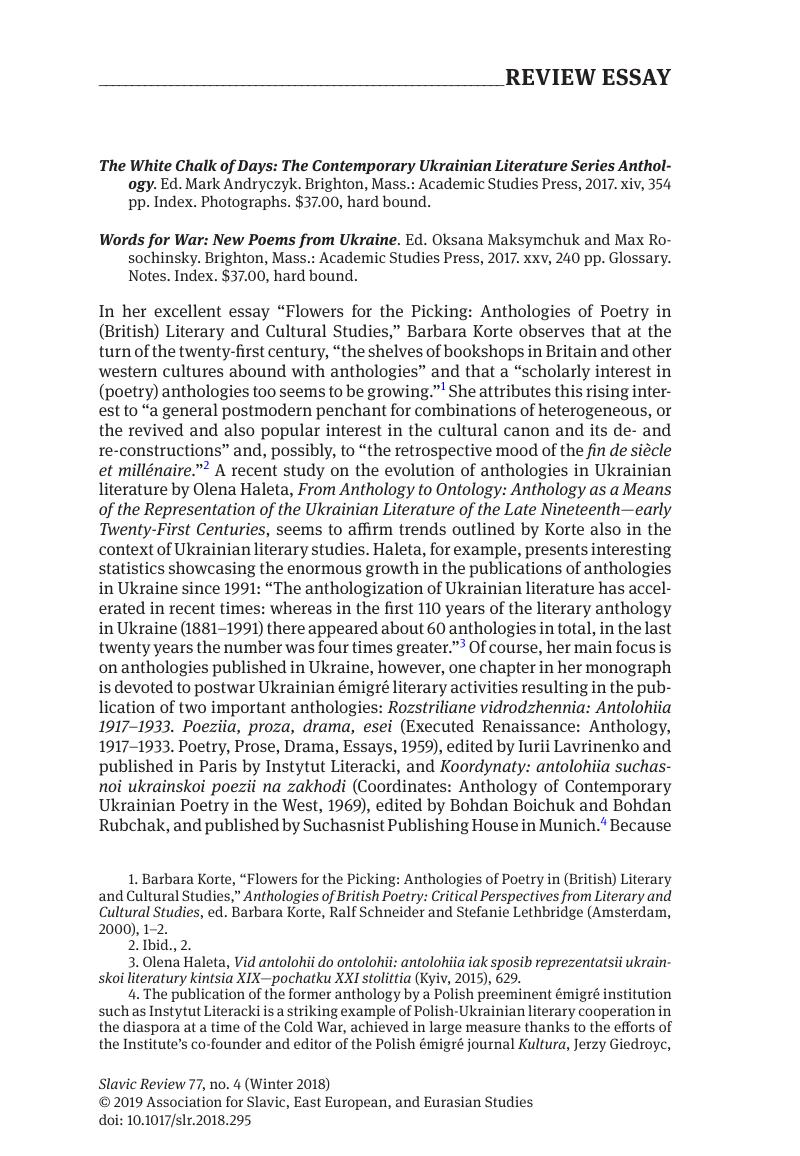No CrossRef data available.
Published online by Cambridge University Press: 12 February 2019

1. Korte, Barbara, “Flowers for the Picking: Anthologies of Poetry in (British) Literary and Cultural Studies,” Anthologies of British Poetry: Critical Perspectives from Literary and Cultural Studies, ed. Korte, Barbara, Schneider, Ralf and Lethbridge, Stefanie (Amsterdam, 2000), 1–2Google Scholar.
2. Ibid., 2.
3. Haleta, Olena, Vid antolohii do ontolohii: antolohiia iak sposib reprezentatsii ukrainskoi literatury kintsia XIX—pochatku XXI stolittia (Kyiv, 2015), 629Google Scholar.
4. The publication of the former anthology by a Polish preeminent émigré institution such as Instytut Literacki is a striking example of Polish-Ukrainian literary cooperation in the diaspora at a time of the Cold War, achieved in large measure thanks to the efforts of the Institute’s co-founder and editor of the Polish émigré journal Kultura, Jerzy Giedroyc, whose political instincts were always on the side of the Polish-Ukrainian reconciliation, especially when threatened with Soviet expansionism.
5. At a book presentation at the Ukrainian Institute of America in New York City on June 22, 2018, Andryczyk, answering my question, admitted that this is the case as far as the selections of Andrei Kurkov, Iurii Vynnychuk, and Sofia Andrukhovych were concerned.
6. Hynes, Samuel, On War and Writing (Chicago, 2018), 30CrossRefGoogle Scholar.
7. This is one of only two poems by Iakimchuk that figure both in The White Chalk of Days and Words for War. There is no overlap in the selections of two other authors (Mariana Savka and Serhii Zhadan) that are featured in both anthologies.
8. Hynes, On War and Writing, 30.
9. His selection is opened by the poem bearing such title: No Return.
10. Cf. Letters from Ukraine: Poetry Anthology, comp. by Semenchuk, Hryhory (Drohobych, 2016)Google Scholar.